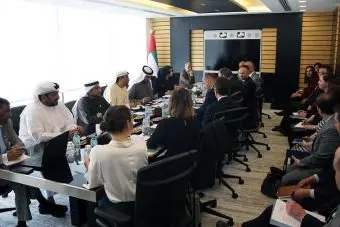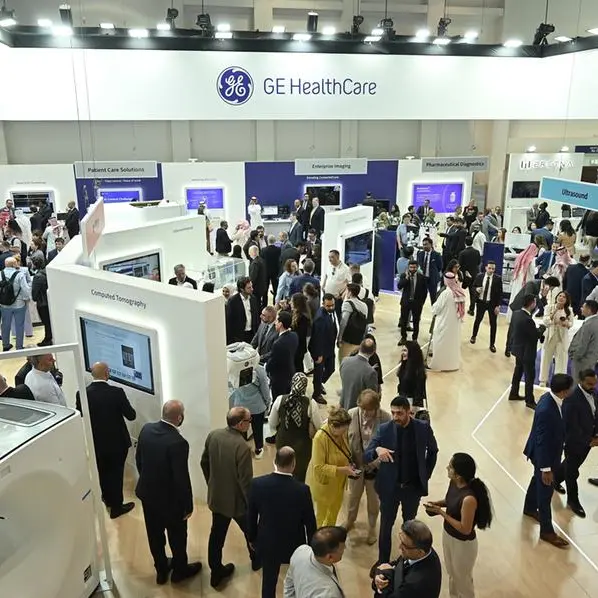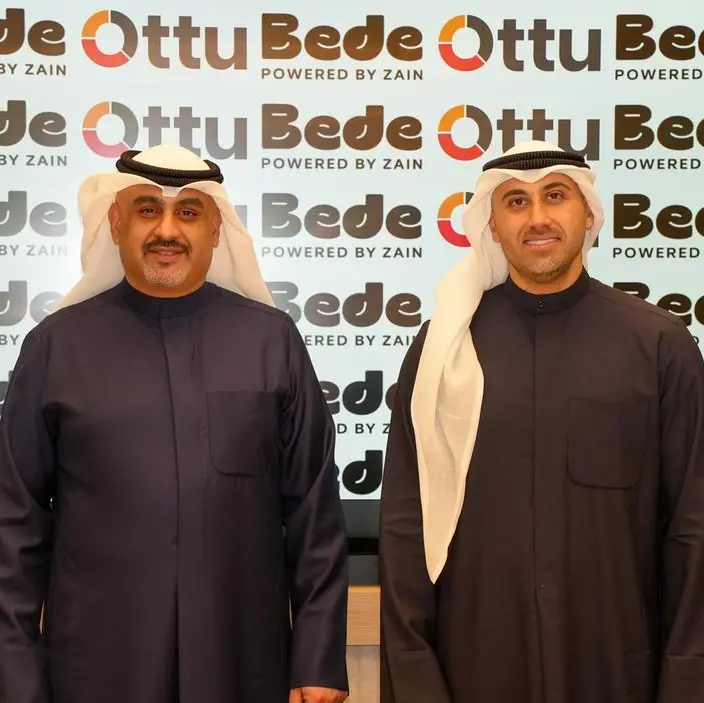PHOTO
Dubai- UAE:
The Emirates Authority for Standardization and Metrology (ESMA) has discussed opportunities for bilateral cooperation with the United States in the fields of oil and gas sector specifications, construction and rationalization of energy consumption, commensurate with the UAE and US specifications in these sectors, And address the technical barriers to trade.
HE Abdullah Al Maeeni, ESMA Director General, received a delegation of 19 officials from the United States of America, headed by the American National Standards Institute (ANSI), government officials, and international institutions in standardization, oil and gas, Construction and energy consumption, to discuss future bilateral cooperation between the two parties.
The two sides discussed the harmonization of the UAE and US standards as part of a plan to sign memorandums of understanding according to the information, knowledge and expertise will be exchanged and the technical capacities of the standards will be built at the time the trade exchange between the United Arab Emirates and the United States of America reached 25 billion dollars.
HE Abdullah Al Maeeni, confirmed that the United States is the third largest trading partner of the UAE, with a total of US $ 31 billion in non-oil trade between the two countries. US investments in the UAE reached US $ 5.2 billion two years ago.
The UAE invests in the USA in technology industries, vehicles, aluminum, food, economic zones, financial and banking services, shipbuilding, oil and gas sector, management and operation of seaports, tourism, retail trade, e-commerce and information technology.
US investments in the UAE are concentrated in the ICT, financial services, insurance, real estate, manufacturing, mining, healthcare, transport, warehousing and wholesale and retail sectors.
Al Maeeni, also said that bilateral meetings would contribute to the development of technical services in the economic and trade sectors and facilitate the flow of goods between the two countries, as well as consultations on the possibility of facilitating trade exchange through attention to the field of standards and measurements in a way that enhances the quality of goods and products.
The harmonization of requirements and standards between the two sides to facilitate the mutual recognition of the systems and certificates issued by the two countries was one of the most important points of consultation and the related development of technical cooperation mechanisms in quality fields and conformity assessment programs and standards. He added.
The meeting was attended by Dr. Yousef Al Saadi, Director of Conformity affairs Department, Eng. Khalaf Khalaf, Director of Standards Department, Dr. Rehab Al Ameri, Director of the National Accreditation Department, Eng. Amina Zainal, Director of Metrology Department.
-Ends-
© Press Release 2019Disclaimer: The contents of this press release was provided from an external third party provider. This website is not responsible for, and does not control, such external content. This content is provided on an “as is” and “as available” basis and has not been edited in any way. Neither this website nor our affiliates guarantee the accuracy of or endorse the views or opinions expressed in this press release.
The press release is provided for informational purposes only. The content does not provide tax, legal or investment advice or opinion regarding the suitability, value or profitability of any particular security, portfolio or investment strategy. Neither this website nor our affiliates shall be liable for any errors or inaccuracies in the content, or for any actions taken by you in reliance thereon. You expressly agree that your use of the information within this article is at your sole risk.
To the fullest extent permitted by applicable law, this website, its parent company, its subsidiaries, its affiliates and the respective shareholders, directors, officers, employees, agents, advertisers, content providers and licensors will not be liable (jointly or severally) to you for any direct, indirect, consequential, special, incidental, punitive or exemplary damages, including without limitation, lost profits, lost savings and lost revenues, whether in negligence, tort, contract or any other theory of liability, even if the parties have been advised of the possibility or could have foreseen any such damages.




















